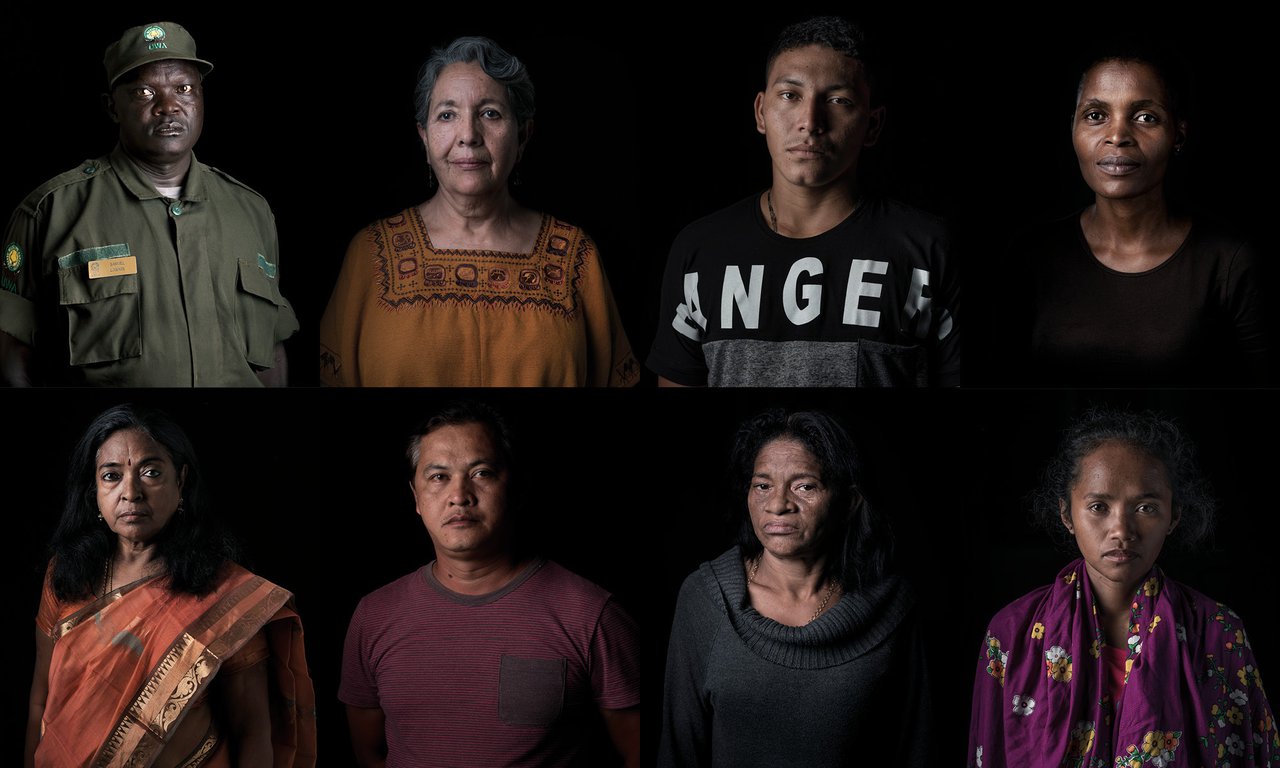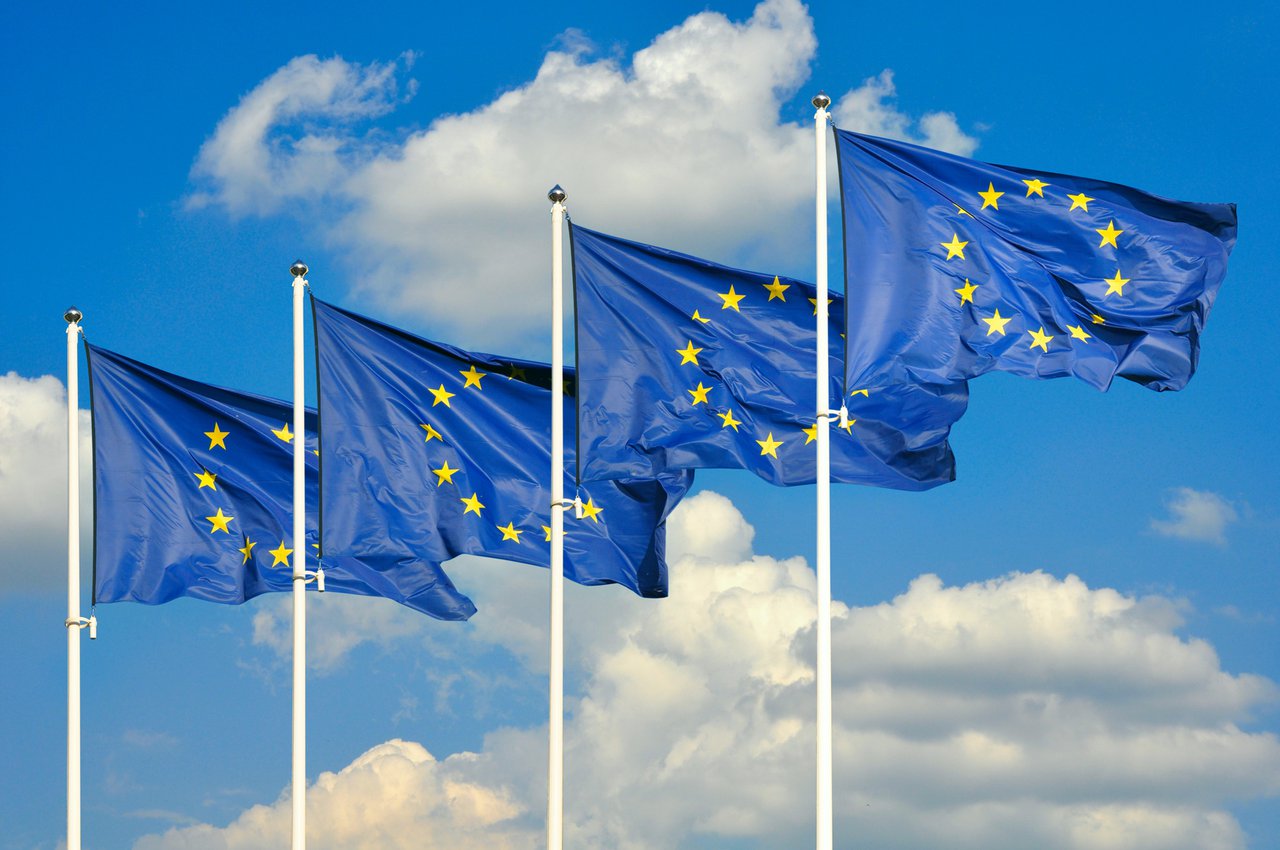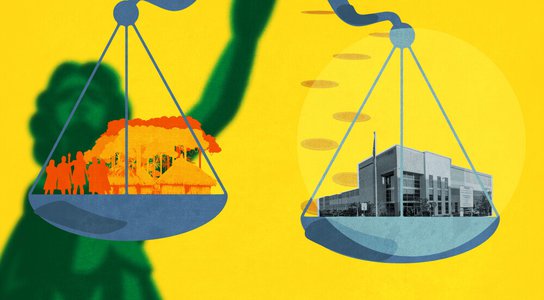For human rights to be respected, companies need to radically change. Environmental defenders are on the front line protecting our planet against business interests. It’s time for governments around the world to put corporate accountability at the forefront of efforts to protect people and our planet
Tomorrow is International Human Rights Day and a chance to reflect on how far the world has come in tackling major challenges to humanity such as climate breakdown - as well as what is preventing progress. For decades, corporates have been responsible for the destruction of our planet and this continues today. Rather than being part of the solution, too many of the world’s biggest and most powerful corporations are profiting from practices that are destroying our planet, driving people from their homes and, at times, fuelling violence against environmental defenders standing up against unfettered resource extraction in their communities. But there is growing political momentum in the EU to tackle this corporate abuse of power. Last month, we brought together EU policy makers and an environmental defender from the Brazilian Amazon to discuss problems faced by communities and the need for the EU to bring forward legislation to protect defenders from corporate harm.

Defenders are often on the frontline defending their land and our planet against harmful business practices. Thom Pierce
How are corporates harming people and planet?
Many people now argue that it's our human right to have a safe, clean, healthy and sustainable environment. Yet companies continue to commit devastating harms against people and our planet. Last week, the UN Secretary General Antonio Guterres said humanity is waging a suicidal war on the planet and that nature always strikes back, with force and fury. He called on every country, city, company and financial institution to act. We strongly agree, particularly when it comes to the responsibility of companies and finance for climate breakdown and abuse of human rights.
Just 100 companies account for 71% of global emissions and for decades companies have committed or benefited from human rights abuses and environmental destruction. Last week, we published explosive evidence of the litany of different corporate actors - from meat giants, to international supermarkets and big banks - that are causing and benefitting from devastating deforestation in the Brazilian Amazon. Worse still, some of this devastation also involved human rights abuses against indigenous and landless peoples.
Each year, Global Witness tracks the number of those environmental and land defenders trying to prevent the development of land and destruction of the planet that are killed in the midst of their campaigns. Last year was the most dangerous year on record for those brave activists with 212 people losing their lives. There are sectors of industry that are consistently seen to be the drivers of this deadly violence, including mining, logging and large-scale agricultural projects. At our event last month, we heard directly from an environmental defender from the Brazilian Amazon, who together with his community is protesting against a hydropower dam that has reportedly had damaging and lasting impacts on local people by causing huge deforestation, and a loss of land, food and access to water. We discussed the many ways that defenders are negatively impacted by the actions of companies and how we can make progress to stop this. Companies should be conducting due diligence along their supply and value chains to prevent and mitigate harms to people and planet. Governments including the EU need to bring in legislation to oblige companies to do this and to hold them liable when action isn’t taken to prevent harm.
Watch the recording of that event here.
What can be done?
The usual response from companies is to point us in the direction of their pious sounding policies and voluntary, self determined targets. However, as our Beef, Banks and the Brazilian Amazon report shows, the companies we exposed did have policies in place to stop deforestation. The problem was that the companies didn’t abide by their own policies (with zero consequences for inaction) and they didn’t fundamentally change their business models to rid their supply chains of climate destruction and abuse of human rights. They are also not held liable when they fail to prevent and/or cause harm. Instead, they continue to put profit before people and planet. As the UN Secretary General says, this is what needs to change.

There is growing political momentum in the EU to regulate corporate harms to people and our planet. Next year the European Commission will bring forward new legislation. Tetiana Vitsenko / Alamy Stock Photo
There are however glimmers of hope, with growing political momentum to properly regulate companies and their impact on people and the planet. Last week, governments of all 27 EU member states called for concrete action. The EU Council conclusions, agreed under the leadership of the German Presidency of the European Council, called on the European Commission to bring forward legislation next year to put an obligation on all companies operating in the EU to carry out due diligence along their global supply and value chains to prevent harm to people and planet. This is a big deal. It means that the 27 EU governments join the European Parliament and Commission in supporting concrete action to regulate companies.
But as always, without concrete action there will be no change. We need to see the EU bringing forward a robust proposal which covers all companies operating in the EU, across all sectors, including finance, and their supply and value chains, ensures that environmental defenders and affected communities can bring cases against companies that are responsible for harms and holds companies liable for those harms.
The theme for International Human Rights Day 2020 is ‘Recover Better- Stand Up for Human Rights’. A key part of that will be putting an end to this incessant corporate abuse of power and taking action through new laws to protect people and the planet. Next year must be the year of climate action, to protect our planet and the people on the front line defending it. We, together with our partners across Europe and around the world, will be holding companies and the EU’s feet to the fire to ensure this happens.
Author
-
Rachel Owens
Head of EU Office and EU Advocacy / Directrice du Bureau (UE). Campaign Lead on Corporate Accountability


